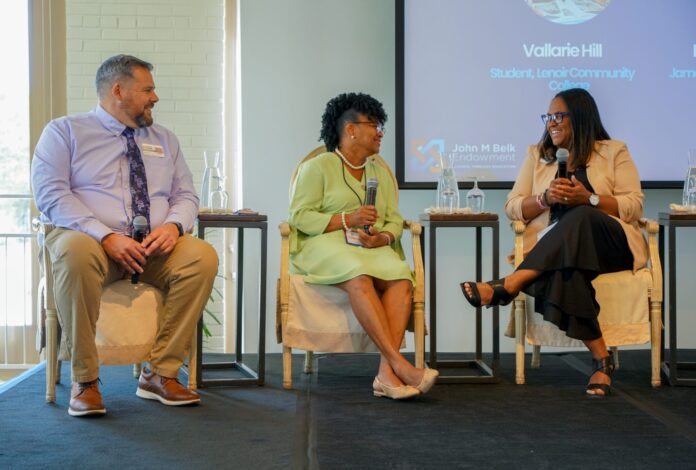North Carolina leaders, education stakeholders, and representatives from N.C. community colleges gathered in Greensboro April 8-9 for the John M. Belk Endowment’s (JMBE) third annual adult learner convening.
The event focused on the future of higher education and how community colleges can continue to be a place of maximum opportunity for adult learners, or students over the age of 25.
“When we started this in 2023, our hope was just to elevate the dialogue of why adult learners are the future of higher education,” said MC Belk Pilon, JMBE’s President and Board Chair. “We never could have imagined how this has unfolded. We have seen this topic spread across our state and the country.”
In 2021, JMBE launched NC Reconnect, an initiative focused on helping North Carolina’s community colleges engage, reenroll, and credential adult learners. The initiative also addresses the critical economic need in the state to fill current jobs. NC Reconnect aims to “improve workforce opportunities and quality of life for adult learners across the state.”
The statewide effort started with five community colleges and now includes a total of 24.
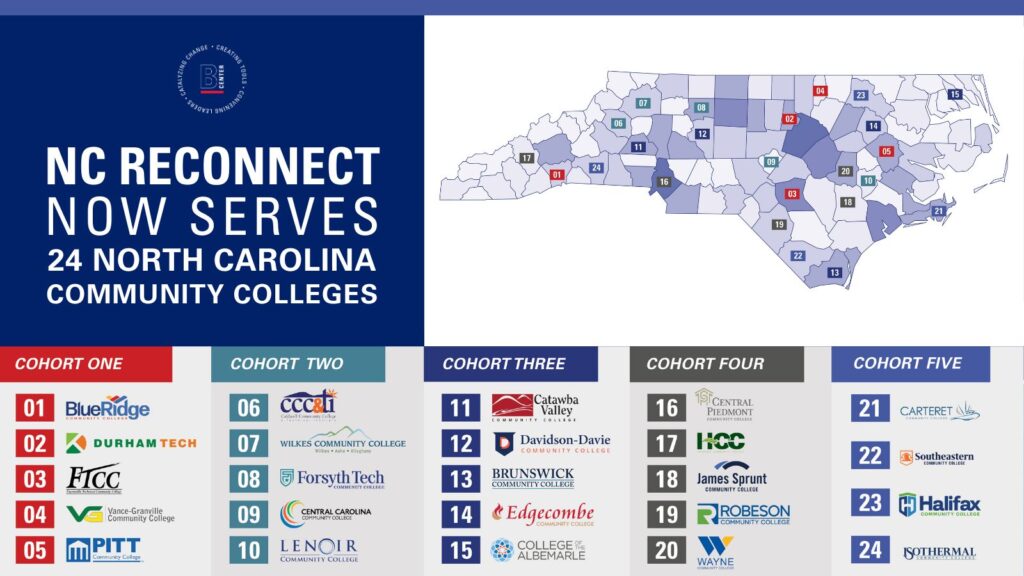
Broadly, NC Reconnect is an outreach campaign to engage students who previously attended one of the 24 schools. Colleges receive direct student outreach from InsideTrack, along with marketing support from VisionPoint Marketing and Crisp Communications. Institutions also receive funding that can be used in various ways, including outreach events, scholarships, technology, hiring staff to support reenrolled students, and partnership expansion.
As many as eight partners, including the Belk Center for Community College Leadership and Research, myFutureNC, and the N.C. Community College System (NCCCS), collaborate to support the efforts of NC Reconnect.
Since its launch, NC Reconnect has reached out to 42,971 adult learners who stopped out at one of the colleges listed above. Nearly 3,000 adult learners have returned to continue their education as of spring 2025.
The NCCCS has also doubled down on its efforts. Since launching two adult learner pilot programs – including NC Reconnect – the number of adult learners enrolled in N.C. community colleges increased by 10%, according to a 2023 report.
When NC Reconnect first started, Pilon told colleges that “it just takes one,” meaning reaching and reconnecting with just one adult learner is worth the effort.
“We never would have dreamed that over the course of these cohorts, we would have nearly 3,000 adult learners reenroll,” said Mike Krause, managing director at JMBE. “What I think it indicates is this is the moment for adults in higher education.”
NC Reconnect provides a vessel for colleges who want to serve adult learners better, Krause said. And the colleges start by reengaging students who were enrolled but never finished. By focusing on those students first, you start to see larger scale transformation, he said.
The transformation Krause describes is focused far less on enrollment numbers and more on culture change across the community colleges, looking at everything from funding to holistic student supports to adapting the way colleges operate to serve their biggest population – adult learners.
‘Adult learners are adulting every day’
Community colleges serve some of the most diverse student populations. They are different ages, from different income levels, and most are juggling jobs, families, and a host of other life circumstances as they enter these institutions. To center the conversation, the convening kicked off with one adult learner’s journey alongside the experiences of staff members who work with adult learners daily.
Vallarie Hill is a student at Lenoir Community College. Hill’s journey is one marked with grief, healing, and gratitude for the college she says deeply cared for her during a time of great need.
After her husband’s passing, Hill, who was retired, made the decision to return to school to finish her degree in early childhood education. At the same time, Hill was the caregiver for her 14-year-old grandson who had been diagnosed with terminal cancer.
“I was in a broken situation,” Hill said.
When she returned to Lenoir Community College, Hill said she was embraced — that instructors didn’t look at her funny if she cried.
“I needed guidance, and they guided me,” Hill said. “Whatever I needed, my needs were met.”
Hill was asked how colleges around the state can better serve adult learners.
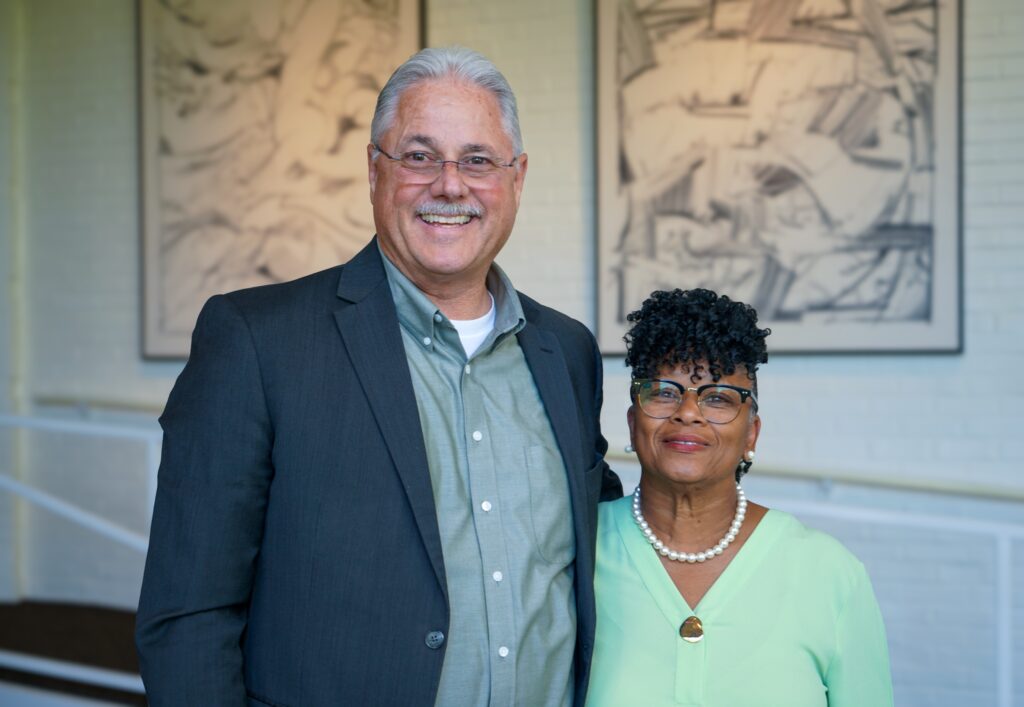
For Hill, the answer was easy – “Care for them.”
Hill said that if colleges want to understand their students better, they need to understand that “broken crayons still color.” Supportive care goes beyond financial and academic and includes wrap-around services that not only embrace the student where they are but help them take the next step.
Hill was joined by James Sprunt Community College Success Coach Nicole Banks and Nick Cerda, recruiter and success coach at Haywood Community College. Like Hill, Banks and Cerda said when colleges are adapting policies and procedures to better serve students, they should remember that adults have a multitude of situations to contend with in their lives.
“Adult learners are still adults, adulting every day,” Banks said.
Haywood was among several colleges in western North Carolina to be impacted by Hurricane Helene. One of Cerda’s students had to be rescued from her car due to rising flood waters. When Cerda was able to connect with the student, she explained that her car was destroyed, and she could no longer attend school.
Hearing that, Cerda got to work, connecting with various groups to figure out a solution. Cerda’s efforts led to enough funds being raised to buy the student a car. One group at the college even helped pay for her tag and tax. Cerda explained how the rapport he had built with the student gave him the opportunity to step in and help.
“Most of the time when you give things away, people don’t want free stuff,” Cerda said. “But she trusted me enough that I could do that for her.”
Beyond building trust with students, Cerda said college leaders should evaluate how they enroll their students, noting that most often the enrollment process is geared toward high school students. Oftentimes that means streamlining processes to make them more efficient for adult learners. Cerda suggested that if leaders want to understand their enrollment process, they should try secret shopping, even recommending that leaders sit down with someone applying and ask them what’s confusing about the application.
Adult learners need to know how to pay for college
North Carolina’s Next NC Scholarship provides thousands of dollars to eligible students across the state to attend one of North Carolina’s 58 community colleges. The scholarship combines the federal Pell Grant with the state-funded financial aid program in an effort to provide a simplified and predictable scholarship award. All that is required to apply is filling out a Free Application for Federal Student Aid (FAFSA).
But the process of applying, being awarded the scholarship, or even sourcing additional college funding is still confusing for adult learners.
Mary Shuping and Kathy Hastings of North Carolina Education Assistance Authority (NCSEAA) and Caldwell Community College & Technical Institute President Dr. Mark Poarch led a panel discussing NEXT NC, including how to raise awareness and demystify the financial aid process.
In 2021, the General Assembly allocated $1.25 million to raise awareness of the state’s scholarship and importance of completing a FAFSA. For adult learners, that awareness is key.
Hastings said that adult learners are more concerned about taking on student loan debt and the cost of getting a degree. Hastings also said that once adult learners hear the message about Next NC and they know about the FAFSA, their interest in college goes up 14 points.

Hastings suggested that if cost and fear of student loan debt are the biggest barriers to attending college, colleges should make it easy to find the solution. Those solutions include:
- Make financial aid easy to find from your homepage,
- Make financial aid easy to understand,
- Help students learn about the different types of aid,
- Be transparent,
- Make sure students know about aid beyond Pell grants, and
- Let them know how to get help with the FAFSA.
Hastings went on to provide website examples from several N.C. community colleges.
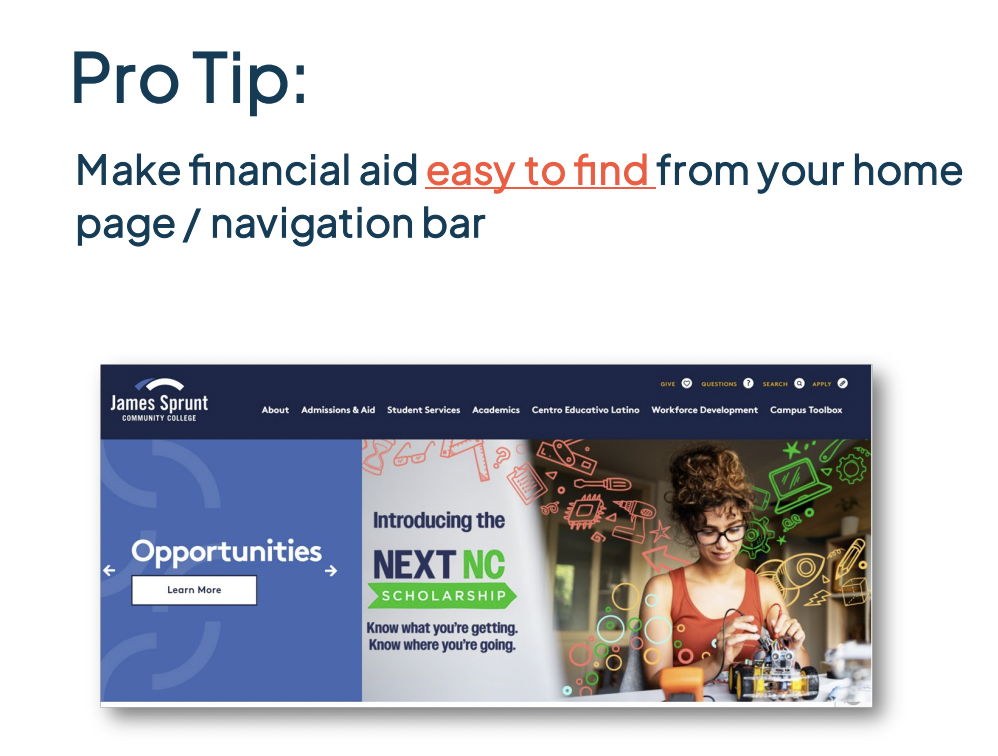
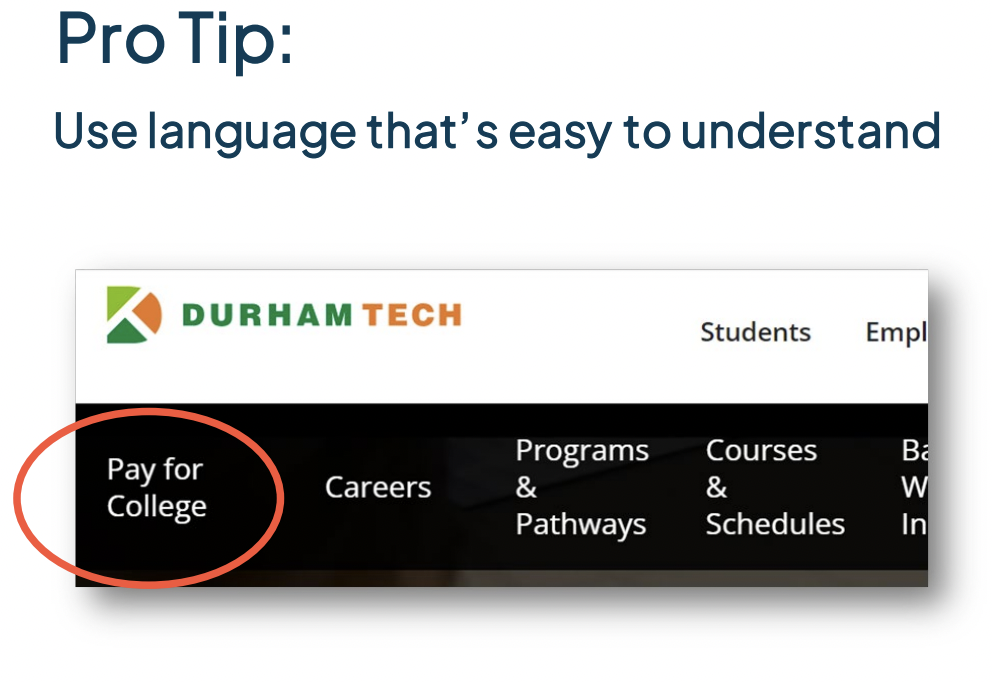
Understanding North Carolina’s demographics
The two-day convening included a discussion about the changing demographics of North Carolina from Laura Ullrich, director of the community colleg initiative at the Federal Reserve Bank of Richmond. Part of Ulrich’s role is to oversee the team in the regional and community analysis unit that produces the Richmond Fed Survey of Community College Outcomes.
The Federal Reserve has two mandates, Ulrich said. The first is related to inflation and stable prices, and the second is related to maximum employment.
Ulrich’s keynote address focused on the second mandate, including the need for flexible, short-term education programs to engage adult learners.
“We don’t want people to just have a job,” Ulrich said. “We want them to have a job that best uses their talents, their resources, their knowledge, and their skills.”
Community colleges play a tremendous role in helping people get the skills they need for work, Ulrich said. But the education pipeline is leaky and not everyone is making it out of high school or into a postsecondary pathway and into the workforce.
Nationally, the country has not gotten back to the pre-COVID employment trajectory. North Carolina, however, is one state that has outperformed the rest of the country consistently during the post-COVID period, Ulrich said, noting that the state has grown at a fast rate and been an importer of talent. But not all parts of North Carolina have experienced the same types of growth as areas like Raleigh or Charlotte, she said.
Ulrich said while employment came back, it wasn’t all the exact same jobs. She highlighted that if some of these projects on the horizon come to fruition, North Carolina will see an increase across a number of sectors, including advanced manufacturing, something that “could be a tremendous opportunity,” Ulrich said.
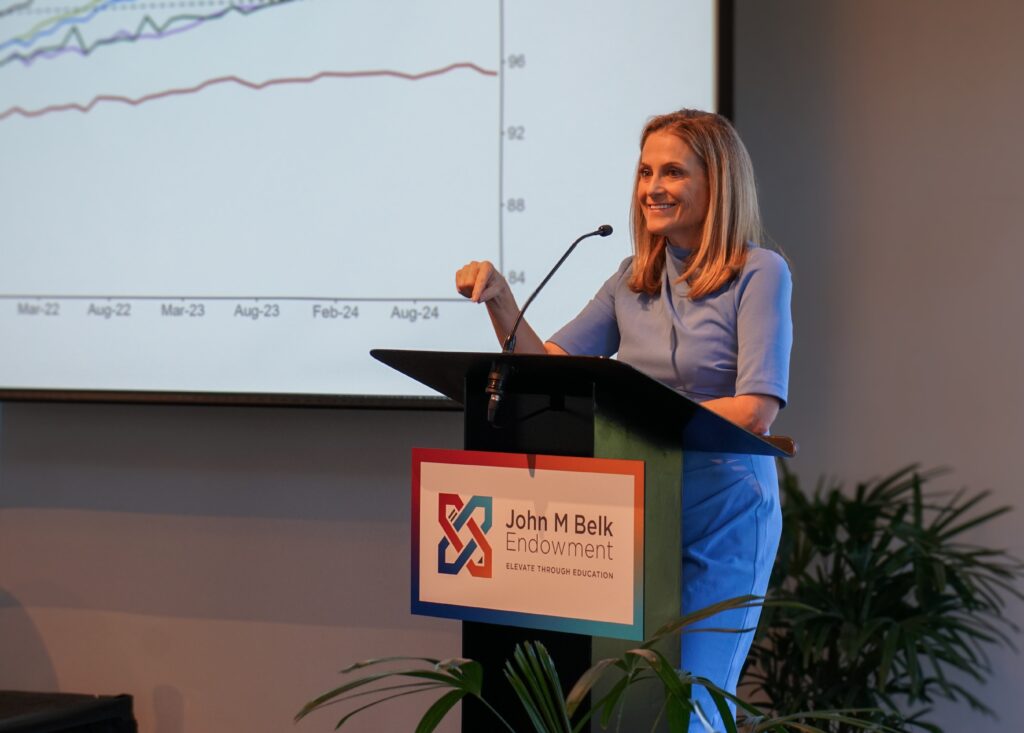
The question that Ulrich and other economists ask is how do you encourage people to get in the labor force? Providing higher-paying jobs is one way. But there are plenty of barriers as to why individuals aren’t in the workforce or working toward a credential.
Ulrich said that fewer and fewer people are entering college, both community colleges and four-year institutions, right out of high school every year, and that it’s a persistent trend with no real turnaround.
That means the state will have more adult workers or potential adult workers who do not have a credential or a degree than it did years ago, she said. At the same time, the entire country is experiencing both a decline in population and the great resignation with individuals exiting the workforce.
When faced with this reality, Ulrich said people will need to start thinking differently about why someone is not in the workforce or pursuing education, particularly considering worker demand is significantly higher than labor force participation.
Using data from the payroll employment report, Ulrich pointed to a group of individuals who responded saying they are not working and would like to work but aren’t looking for a job. Ulrich then asked the room why these individuals aren’t working. Attendees responded with answers like child care, transportation, housing, substance abuse, and physical and mental health issues, among other things.
Those answers are what Ulrich and others refer to as nonskill barriers. Barriers, Ulrich said, that can be difficult to overcome.
Ulrich said there’s another reason individuals may not be pursuing education, and that’s because they did not feel like they received positive utility from the education they consumed. That could mean they had a less than ideal K-12 experience or were never told they were smart enough to pursue a postsecondary credential.
“They may very well assume that consumption of higher education will give them negative utility,” Ulrich said. “If people perceive higher ed as something … that is going to give them negative utility, we can’t assume that if we just put programs out there, they’re going to jump in and consume it.”
Ulrich went on to say that flipping the switch will require colleges to educate adults on how enrolling and completing can provide them a different way – creating a positive educational experience.
Supporting military connected students
North Carolina’s demographics are also unique given the state’s number of military connected individuals.
North Carolina has the fifth highest veteran population in the country and is the fourth largest state in terms of active military. Krause said North Carolina is one of only four states with an Air Force Base, multiple Army posts, and a Marine Corps base.
Krause, who is an Army veteran, led a panel discussing how colleges are adapting to better respond to military connected adult learners.
Those on the panel included Dr. Patty Pfeiffer, Army veteran airborne rigger and president of Wayne Community College; Scot McCosh, senior director of military and veteran programs at Fayetteville Technical Community College and command chaplain for the U.S. Army Civil Affairs and Psychological Operations Command (Airborne); and Marcus Holley, Fayetteville Tech Project Manager and Army veteran.

The panelists shared their personal experiences while serving, highlighting the need for specialized support for veterans and their dependents.
“I jumped out of perfectly good airplanes for six years where I served,” Pfeiffer said.
While each of the panelists entered the military for different reasons, they all shared one thing in common – the military changes you.
“It’s a whole identity,” Krause said. “It’s what you wear every day. It’s who you hang out with. It’s what you talk about. It has its own lexicon.”
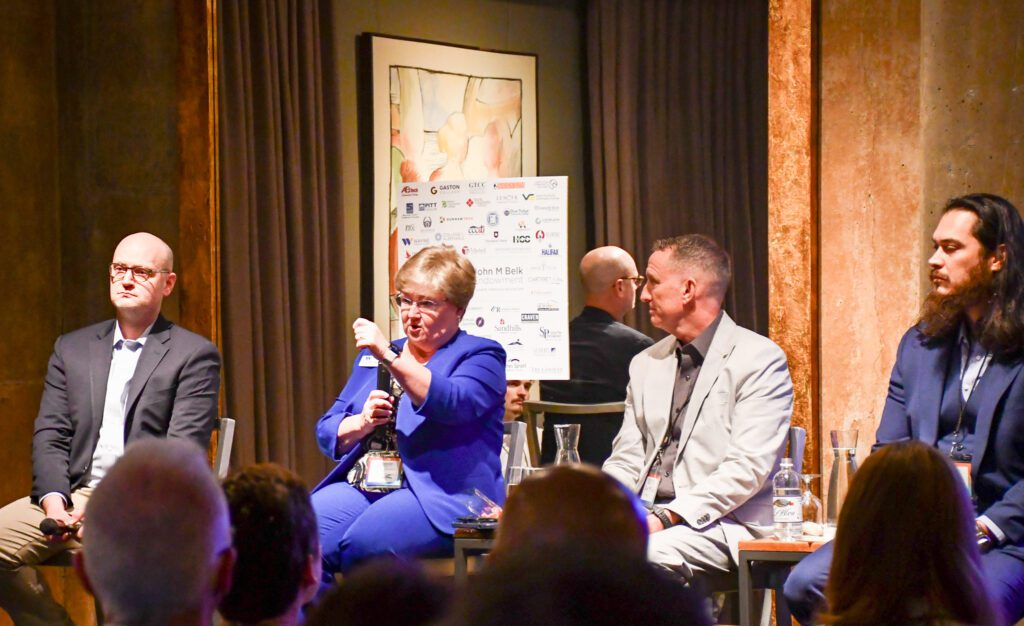
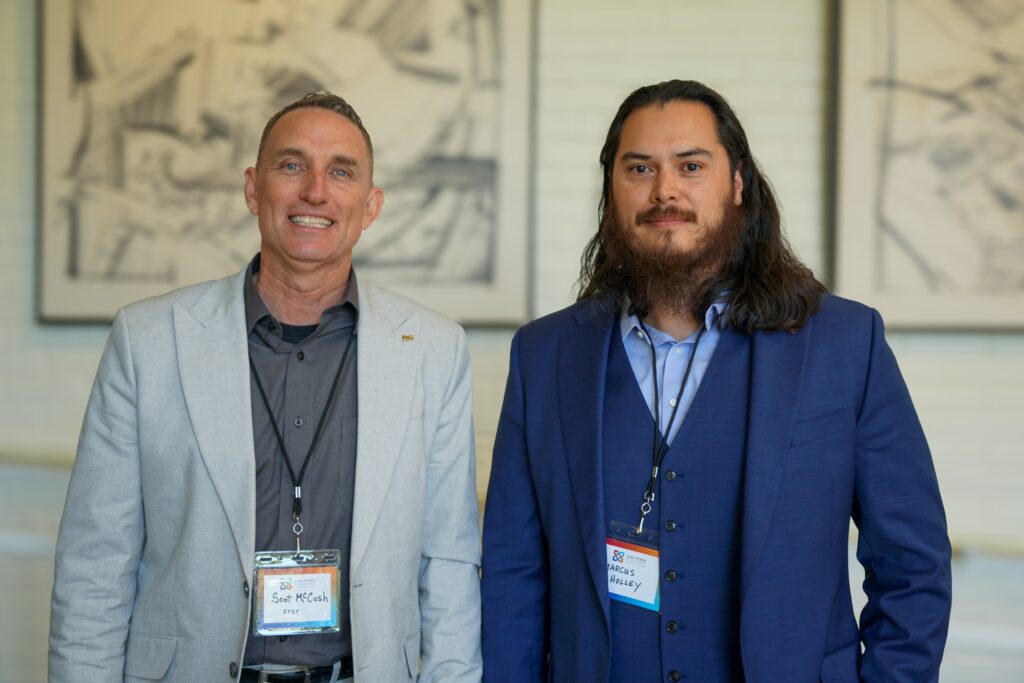
The panelists went on to describe their exit from military life and the challenges of reentering civilian life. Holley, who medically retired from the Army and is the recipient of two purple hearts, spent his time leading men in combat and humanitarian aid missions.
“When I got out of the military, I was like, man, I can probably do anything,” Holley said. “I started looking around and realized I didn’t qualify…for absolutely anything.”
Holley said when working with veterans, giving them direction and helping them understand their military benefits is critical. That means colleges will need to ensure their financial aid staff are knowledgeable about various military education benefits and how to help students optimize their use.
The panelists also noted that having a dedicated staff member on a military base could provide direct support and guidance to active-duty personnel, dependents, and spouses. Local veteran organizations and reserve centers can also help colleges make connections and support military-affiliated adult learners. Having veteran faculty and staff on campus who can relate to the experiences of student veterans and serve as mentors is an additional layer of needed support, panelists said.
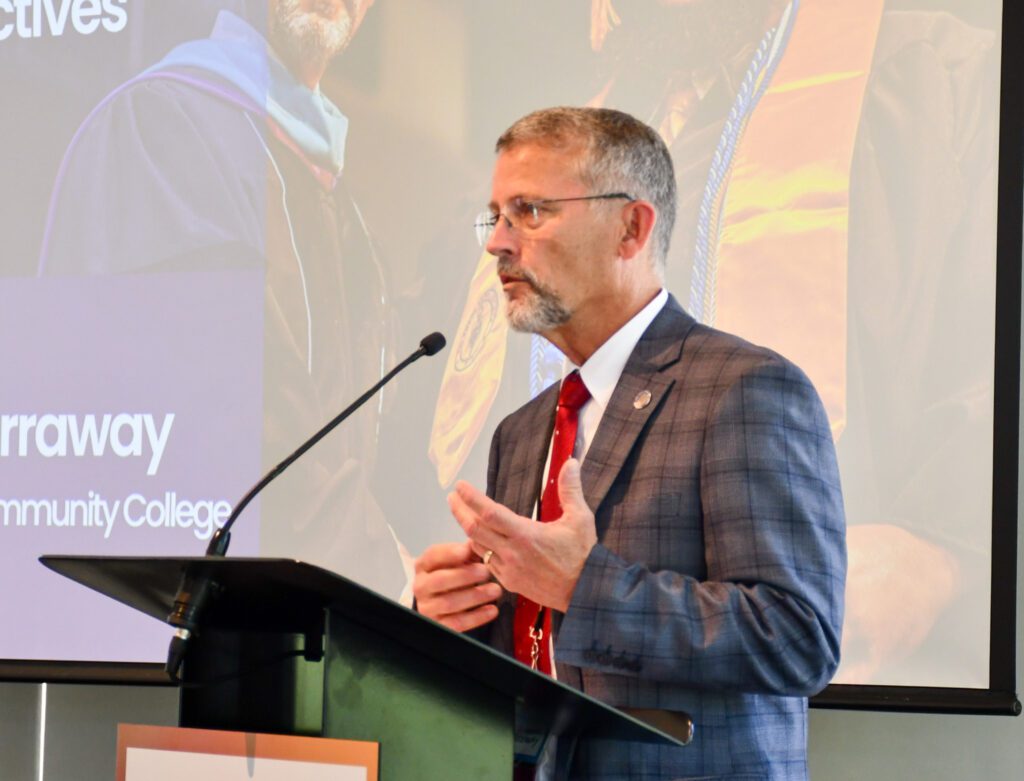
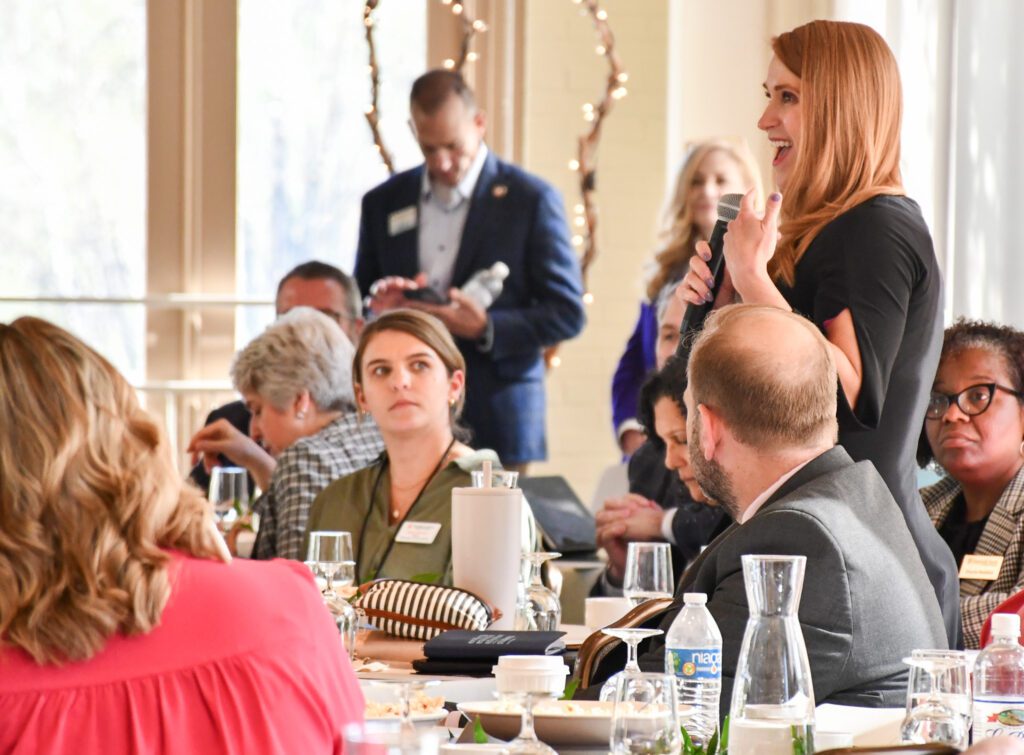
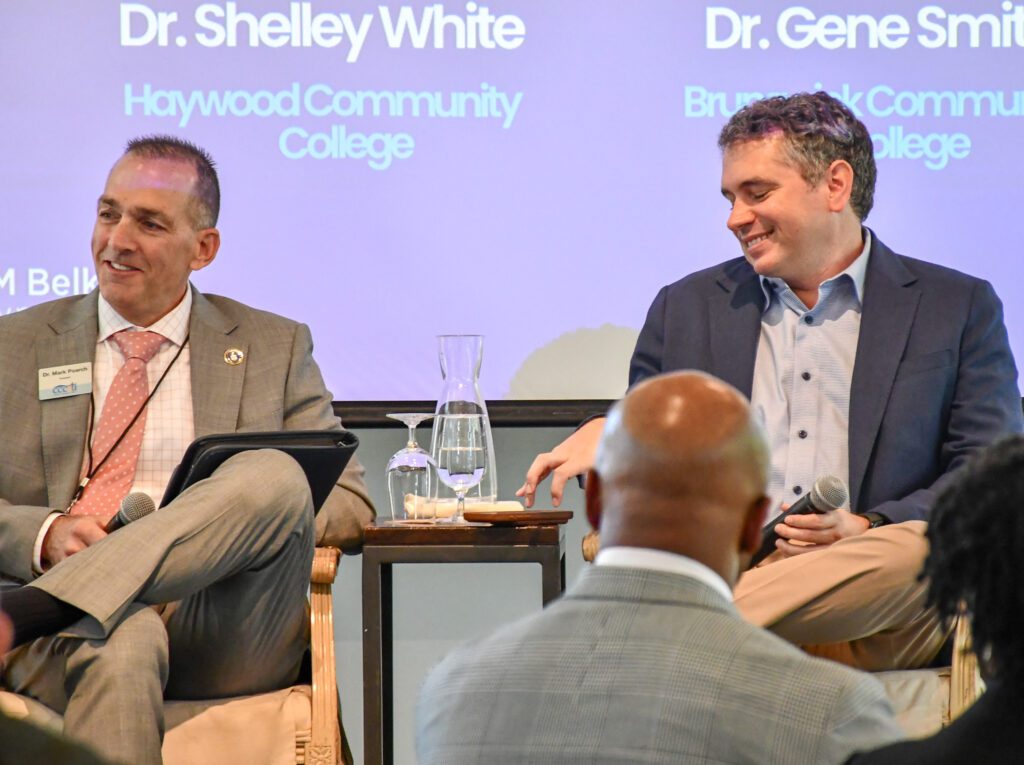
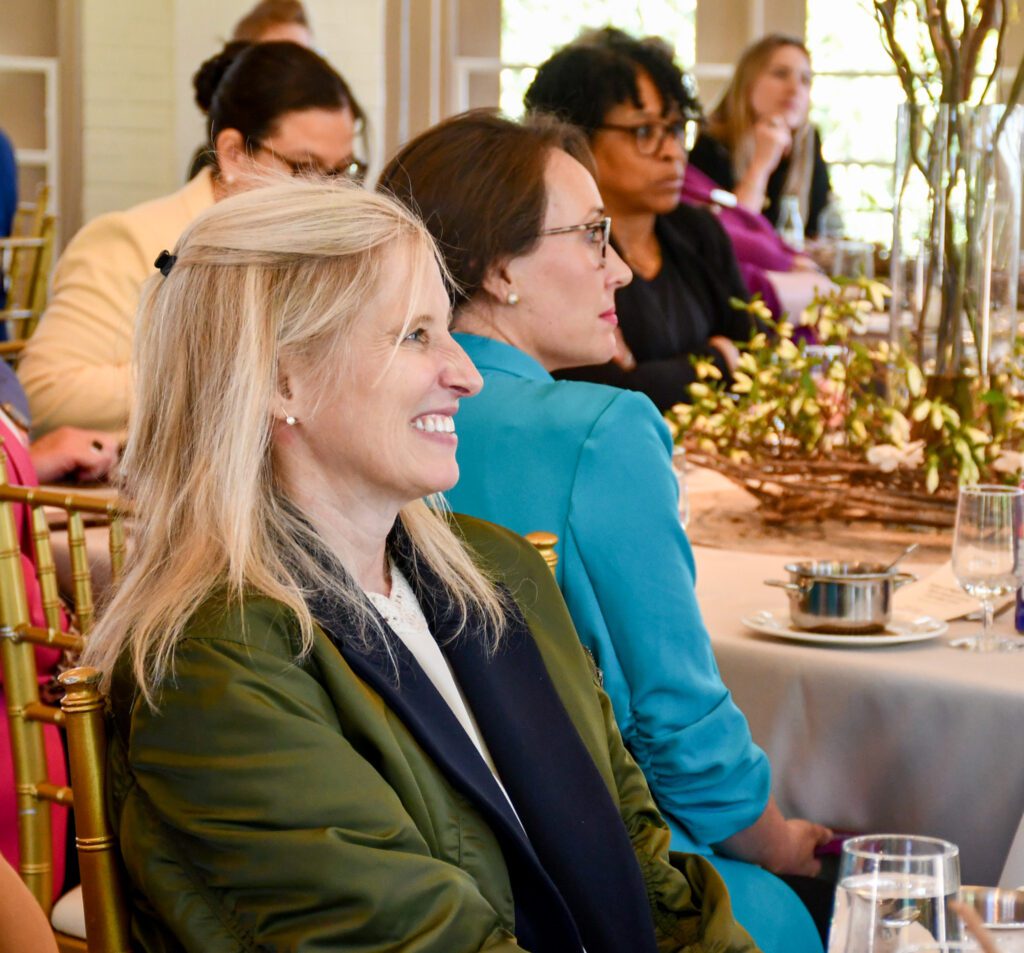
Looking ahead
“Adult learners want to come back to college,” Krause said in a previous interview with EdNC. “We have to make it work for them.”
Leaders from the first two NC Reconnect cohorts will tell you that the strategies and culture change initiated by NC Reconnect has permeated throughout their campuses.
“NC Reconnect was a new attitude on our campus but has transformed to standard operating procedures,”said Blue Ridge Community College President Dr. Laura Leatherwood.
For new cohorts, NC Reconnect is a chance to reimagine how they operationalize their campuses.
Dr. Chris English, president of Southeastern Community College, said he hopes NC Reconnect will help the college reengage students who maybe in the past were focused on a two-year curriculum degree and plug them into a workforce development program, pushing them toward a career.
But the bottom line, and what all college leaders can agree on, is that when it comes to serving adult learners, it’s about making personal connections.
“If they don’t understand and believe that you’re in the boat with them, it’s not going to work,” said Dr. Jay Carraway, president of James Sprunt Community College. “That takes compassion. They have to know you’re on their team.”
Editor’s note: The John M. Belk Endowment supports the work of EducationNC.


